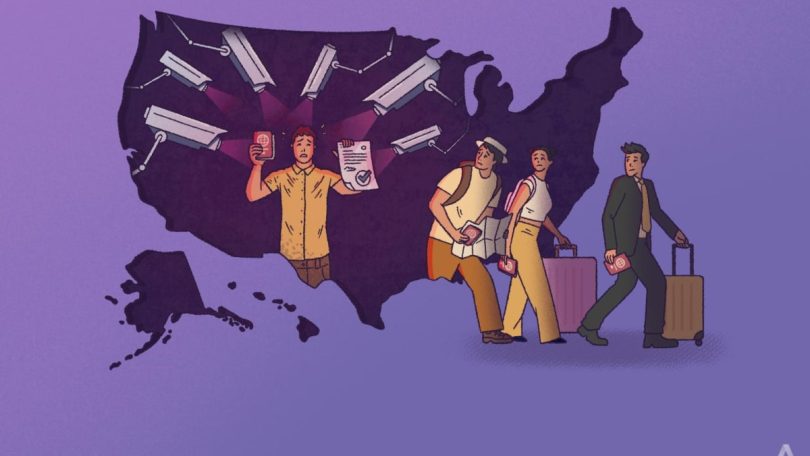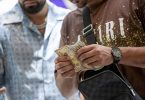Experts also noted that rising political polarisation and anti-globalisation sentiments have complicated the US’ standing as a stable destination for education, work and investment.
Dr Pan Zhengqi, a senior lecturer in business at the Singapore University of Social Sciences (SUSS) said: “America’s appeal has long stemmed from its openness to talent, diversity of thought, and its deep-rooted tradition of academic freedom. However, these qualities are increasingly uncertain.”
He cited Mr Trump’s restrictive immigration policies and threats to defund universities perceived as politically liberal as examples that compound global perceptions of the US turning inward and more unpredictable.
While some might hope America’s image might “reset” once Mr Trump leaves office, Dr Pan said “deeper undercurrents” – such as economic insecurity, scepticism towards globalisation, and cultural conservatism in the US – made his rise possible and will likely outlast the US president.
Should the US be seen as too volatile or unsafe, more Singaporeans may increasingly look to alternatives in Europe, Canada, or Asia. Regional hubs are also becoming more viable as remote work and hybrid study options gain traction, he added.
“These shifts don’t necessarily mean disengagement from the US altogether, but they do suggest a diversification of options, and a weakening of the US’ once near-unquestioned primacy in global business and tertiary education,” said Dr Pan.
Still, the US remains attractive to many Singaporeans, especially for its entrepreneurial economy, said Dr Mustafa Izzuddin, a senior international affairs analyst with Solaris Strategies Singapore.
While Mr Trump’s actions may dent the US brand in the short term, Dr Mustafa said this is unlikely to mark the end of its global cultural influence, though there is now more competition from other countries which Singaporeans could travel to work and study in.
“I think (it won’t be) a long-term impact, but certainly in the short term there’ll be a rethinking on whether the US would be a destination or if they want to look at alternatives.”
Some may choose to steer away from the US for personal or political reasons, Dr Mustafa added, for instance, as a show of solidarity with the Palestinian cause, or because niche study courses are also offered elsewhere.
Mr Jamie Beaton, co-founder and CEO of Crimson Education, said interest in US universities remains steady, though a small number of Singaporean families have raised concerns about student visas and the potential for revocation.
“Even when we clarify that these cases have not impacted students from Singapore and are unlikely to, it can still influence the decision-making process for those who were already uncertain,” said Mr Beaton.
Some of these families are thus prioritising the UK for undergraduate studies, with the possibility of considering the US for postgraduate education, he added.
Overall, the US still dominates interest among Crimson’s Singapore-based students, though more are “rationally diversifying” their applications to include UK, Australian, and European schools, especially as global admissions grow more competitive.
Speaking to CNA TODAY before Harvard’s latest move to sue the Trump administration, Mr Beaton said: “At this stage it’s still very early, but based on precedent and Harvard’s response so far, we fully expect Harvard to mount a swift and serious legal challenge, and to win.”
In conversations with his students, Dr Mark Cenite, an associate dean of undergraduate education at Nanyang Technological University, said that there is a “fair amount of nuance” in how the Trump administration impacts their views of the US.
Many Singaporean students follow American social media influencers and would see that while Trump dominates news headlines, he does not similarly dominate other aspects of American daily life, said Dr Cenite, who teaches media law and artificial intelligence law at the Wee Kim Wee School of Communication and Information.
He added: “Trump has not yet become synonymous with America in my students’ eyes. Students are as familiar with Trump’s American critics as they are with Trump’s words and actions.”
STILL THE DREAM DESTINATION
It may well be too soon to say if Mr Trump’s actions and the volatile climate have affected US university enrolments from Singapore, given that public statistics are tallied annually, and enrolment numbers for the incoming cohort are not yet publicly available.
Yet while the ripple effects of Mr Trump’s policies and shifting global sentiment towards the US may mean that America’s cultural dominance is not the same as it once was, Singaporean students and professionals said the country still holds a strong appeal.
For 27-year-old creative agency founder Jodi Tang, the US once symbolised a key stepping stone in global education and professional growth.
“The challenges of securing visas, coupled with a more nationalistic climate, have made it harder for international talent to see the US as a straightforward, welcoming place to build a career or pursue higher education,” she said.
Still, Ms Tang said that Singaporeans who are adaptable and prepared to embrace different cultural norms, including a more diverse society with a greater sense of individualism, are likely to succeed.
During her recent travels to the US in May, she had a smooth immigration experience despite her expectations for a “more intense” process. She also noticed more “positive views” towards Singapore.
“People often express high praise for Singapore, and I’ve observed that the ongoing tariffs have influenced public opinion. Instead of reinforcing negative views of China, the criticism seems directed more at the Trump administration’s policies,” Ms Tang said.










